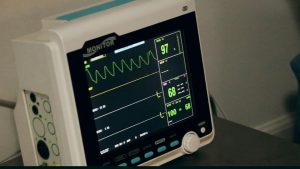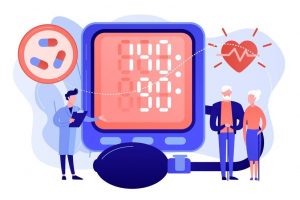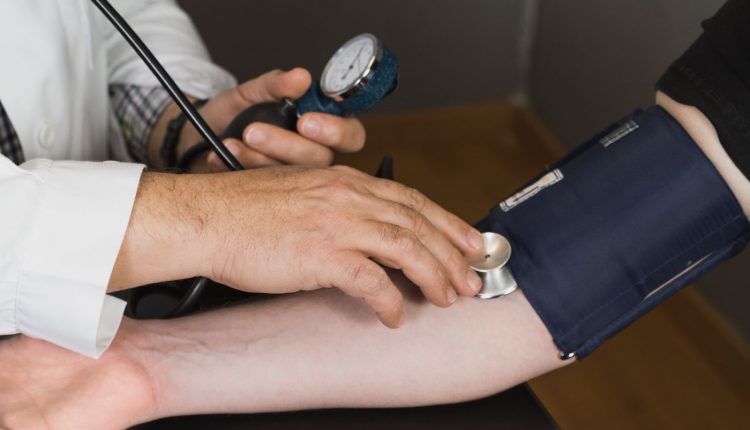Why High Blood Pressure is Becoming a Women’s Issue
Simple steps to manage high blood pressure without overwhelming changes.
We often think of heart disease and high blood pressure (hypertension) as a problem for men. But that’s no longer the case. More and more women are being diagnosed with high blood pressure, and it’s something we need to talk about. Hypertension is a condition that, while silent in its symptoms, can have significant effects on your heart, brain, and overall well-being.
So, what’s driving this rise, and what can we do about it? Let’s dive into why it’s happening and how we can manage it without turning our lives upside down.
What is high blood pressure?
Before we dig deeper, let’s break down what high blood pressure means in simple terms. Blood pressure is the force of your blood pushing against the walls of your arteries as your heart pumps. When that force is consistently too high, it becomes high blood pressure or hypertension. Think of it like a garden hose — if you turn up the water pressure too much, the hose can weaken and eventually burst. In our bodies, prolonged high blood pressure can lead to serious health problems like heart attacks, strokes, or kidney damage.
The numbers to keep in mind
For most people, normal blood pressure is around 120/80 mmHg (millimeters of mercury). When it rises above 130/80, you’re stepping into the high blood pressure zone. While these numbers might sound clinical, they give you a good frame of reference. A simple checkup at your doctor’s office or using a home monitor can show where you stand.
Why blood pressure is rising in women
Many women juggle multiple roles — mother, daughter, caregiver, career professional — and the stress that comes with it can start to impact health. Stress and lack of self-care are two major contributors to the rise in high blood pressure among women. But that’s not the whole story.
Here are a few reasons why more women are being diagnosed with hypertension today:
Hormonal changes
A woman’s body goes through several hormonal changes throughout life, from menstruation to pregnancy to menopause. Each of these phases can affect blood pressure. For example, during menopause, the body’s estrogen levels drop, which can make blood vessels less flexible and more prone to high pressure.
Lifestyle and diet
Modern life is fast-paced, and sometimes we end up prioritizing convenience over health. Diets high in salt, processed foods, and a lack of physical activity are common culprits behind high blood pressure. Combine this with the stress of trying to balance personal and professional life, and it’s easy to see why women are increasingly at risk.
Weight gain and lack of exercise
As women age, especially after 40, maintaining weight can become a challenge. Weight gain around the abdomen is particularly harmful, and it’s closely linked with hypertension. The more weight we carry, the harder our hearts need to work to pump blood. A sedentary lifestyle can add to this risk, so it’s crucial to stay active — even if it’s just a daily walk.
Birth control pills and hypertension
For younger women, birth control pills can be a surprising cause of high blood pressure. Some oral contraceptives contain hormones that may elevate blood pressure, particularly if you’re already prone to hypertension or are overweight.
Pregnancy-related risks
Pregnancy brings its own set of risks. Some women develop high blood pressure for the first time during pregnancy, a condition known as gestational hypertension. If left unchecked, it can lead to complications like preeclampsia, which is dangerous for both mother and baby.
How to know if you have high blood pressure?
The tricky thing about hypertension is that it often doesn’t show symptoms. Many people feel perfectly fine until they have a serious event like a heart attack or stroke. That’s why regular checkups are so important. If you do experience symptoms, they might include headaches, dizziness, chest pain, or shortness of breath.

Easy ways to manage blood pressure
The good news is that high blood pressure isn’t a life sentence. With a few lifestyle changes, you can bring those numbers down and feel better overall. Here are some practical steps you can take:
Make small changes to your diet
You don’t have to overhaul your entire eating plan in one go. Start small. Swap out processed foods with fresh fruits, vegetables, and whole grains. Try cutting back on salty snacks and adding herbs and spices for flavor instead of relying on salt. Drinking plenty of water and reducing your caffeine intake can also help.
Find ways to stay active
You don’t need to spend hours at the gym to see the benefits. Incorporating regular physical activity into your routine can be as simple as a 30-minute walk each day. You could also try yoga, swimming, or dancing — anything that gets your heart pumping and your body moving.
Stress management is key
We can’t completely eliminate stress from our lives, but we can find healthier ways to cope with it. Consider practices like meditation, deep breathing exercises, or even taking a few moments each day for yourself. Setting boundaries and making time for hobbies can also keep stress in check.
Get enough sleep
Sleep is one of the most underrated components of managing blood pressure. Aim for 7 to 9 hours of quality sleep each night. A good night’s sleep can help regulate stress hormones and give your heart the rest it needs.
Reduce alcohol and quit smoking
Both alcohol and smoking are linked to high blood pressure. While enjoying a drink every now and then is fine, cutting back on alcohol can help your blood pressure stay within a healthy range. Quitting smoking, on the other hand, has immediate benefits for your heart and blood vessels.
The power of social connections
Maintaining strong relationships can have a surprisingly positive impact on your health. Whether it’s family, friends, or a support group, having a circle of people who care for you can help reduce stress and improve your overall well-being. Don’t be afraid to ask for help when you need it — after all, mental and emotional health are just as important as physical health.
The role of regular checkups
We tend to avoid doctors unless something feels wrong, but regular health checkups are essential. Monitoring your blood pressure, cholesterol, and overall heart health can catch issues early before they become bigger problems. If you’re over 40 or have a family history of hypertension, it’s especially important to keep an eye on your numbers.
Taking control of your health
It’s easy to feel overwhelmed by all the advice out there, but the most important thing is to take the first step — no matter how small. Maybe that’s setting aside time each week to meal prep or taking the stairs instead of the elevator. Every little bit counts.
By making a few simple changes to your lifestyle, you can reduce the risk of high blood pressure and enjoy a healthier, more balanced life. Hypertension doesn’t have to control your life. You have the power to take control of your health and make choices that support a strong heart and body.

Knowing your family history matters
Sometimes, hypertension can run in families. If your mother, grandmother, or other close relatives have had high blood pressure, you may be at higher risk, too. This doesn’t mean it’s inevitable, but it’s important to know your family history and share that information with your doctor. Understanding your genetic predisposition can help you make more informed choices about your health. Regular checkups, combined with a healthy lifestyle, can go a long way in preventing high blood pressure from sneaking up on you.
Embracing a balanced mindset
While managing high blood pressure requires some lifestyle adjustments, it’s important not to view these changes as restrictive. Think of them as opportunities to invest in your health and well-being. Simple, joyful activities like cooking a new healthy recipe, taking a nature walk, or engaging in light physical exercise with friends can be more fun than they sound. Instead of focusing on what you can’t do, embrace the positive — each change you make brings you closer to a more balanced, healthier life.
The road to better health is personal
At the end of the day, your journey to managing blood pressure is unique to you. There’s no one-size-fits-all solution, and it’s important to find what works best for your lifestyle. Whether it’s finding a stress-relief method that you love, incorporating more movement into your day, or simply being more mindful of what you eat, the key is consistency and self-compassion. You don’t have to be perfect — just committed to taking care of yourself, one small step at a time.

